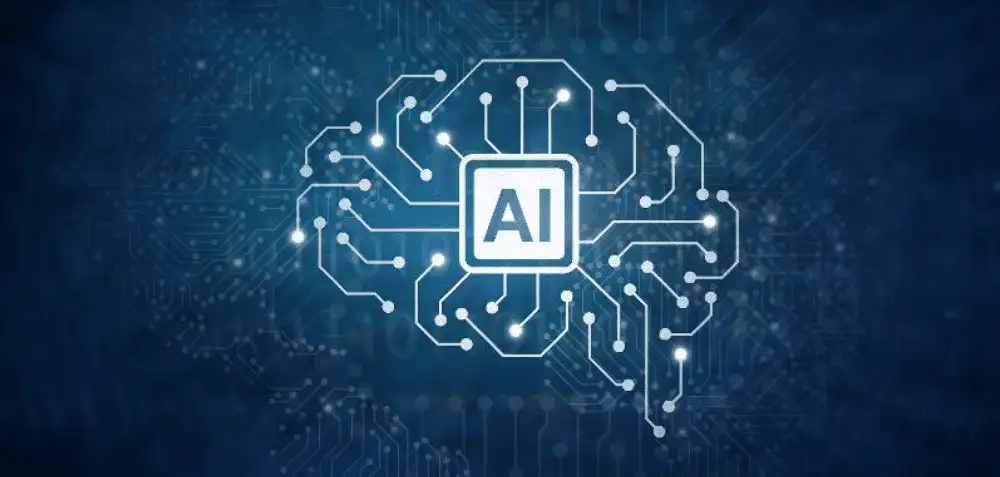Whereas B2B lead generation once boiled down to cold calling and mass email shots a few years ago, today it’s a much more data-driven, individualized, and advanced business. And at the core of this transformation is the utilization of artificial intelligence (AI). From refining whom to target (your ICP) through to how prospects can discover you (AI-SEO, generative searches, etc.), AI is revolutionizing every aspect of the funnel. Below we explore the leading trends and where we see us heading next.
1. Centrality of Ideal Customer Profile (ICP) and Adaptive ICP Refinement
Perhaps the largest adjustment is how organizations define and refresh their Ideal Customer Profile (ICP). The ICP defines the traits — firmographics, technographics, behavior, pain — of firms (and individuals within them) best likely to become high-paying customers. Customarily this has been executed by a manual process, frequently from a history of customers and gut instinct. AI is making it much more specific, active, and continuous.
What’s changing:
- Data-driven ICP definition: AI can analyze large datasets of existing customers, website behavior, engagement, acquisition patterns, demographic and firmographic data. From that data, AI models can extract patterns that constitute your best customers. Signals-mining software from your CRM, marketing automation platform, website analytics, and external databases can determine which of your attributes (size, industry, tech stack, region, buy behavior) are most indicative of success.
- Iterative refinement of ICP: With markets, products, and customer behavior changing comes an adaptation of what a “good lead” looks like. AI systems may iteratively refine ICP variables as a function of conversions, payments, churns, and reference customers. For example, if a software product experiences traction with a specific niche (e.g., mid-market fintech), AI can identify this and shift the attention.
- Tiered and segmented ICPs: Instead of a one-size-fits-all ICP, AI enables multiple ICPs (e.g., geography-focused, industry-focused, company size-focused, use-case focused). It enhances relevance as well as conversion.
Impacts:
- Waste minimization: Less cold calling of low-probability prospects, lower CPL, leaner selling teams.
- Higher velocity: With more accurate lead scoring, SDRs and sales reps can surface the best ones first.
- Improved sales and marketing alignment: With a shared, data-backed ICP, both teams aim at the same goals and qualifiers.
2. Predictive Analytics, AI-Driven Scoring, and Intent Signals
It’s important to understand what leads are likely to convert. Lead scoring and ranking are being transformed with AI by incorporating more variables than ever before, while also doing this in near real time.
Major trends:
- Lead scoring with behavior-based, firmographic, technographic, and intent data.
- Real-time intent signals that detect when someone is “in market.”
- Automated prioritizing and routing of leads to sales or nurture workflows.
This enables faster response times and improved lead-to-customer conversion.
3. Personalization at Scale
Generic mass appeal no longer works. Customers seek experiences as individualized as their needs and circumstances. AI enables personalization at scale by combining company data, role, behavior, and preferences to form tailored messages that connect.
Methods & tools:
- Dynamic content personalization across websites, landing pages, and emails.
- NLP/ML-powered automated outreach for more contextual, less mechanical messages.
- Multi-channel orchestration across email, LinkedIn, chatbots, and ads.
4. Content, SEO, and the Shift Toward AI-SEO / Generative Engine Optimization
Inbound traffic remains vital for lead generation, but search is evolving with AI. The old SEO playbook is becoming less effective as generative and AI-powered search engines rise.
What is AI-SEO / GEO / AEO?
- AI-SEO: Using AI to optimize content for both traditional and AI-based search engines.
- Generative Engine Optimization (GEO): Structuring content so AI systems synthesize and showcase it in summaries or chat responses.
- Answer Engine Optimization (AEO): Writing concise, schema-supported answers for AI-driven search engines.
Key implications for B2B:
- Focus on intent and questions from your ICP at each stage of the buying journey.
- Invest in authority, credibility, and thought leadership content.
- Prioritize machine-parseable data (schema, FAQs, abstracts, tables).
- Continuously update and optimize content based on AI-driven performance signals.
Elevate your brand with Digital Success, a hub for affordable, results-driven solutions in marketing, branding, advertising, and content creation. Leverage your strategic approach to boost visibility, increase sales, and take your business to the next level.
5. Conversational Agents and Chatbots
AI-driven chatbots and conversational agents are becoming standard for capturing and qualifying leads 24/7.
- Chatbots collect data, qualify against ICP, and route to human reps when needed.
- Voice agents help with initial outreach and FAQ handling.
- Automated nurture workflows optimize timing and relevance of follow-ups.
6. Enrichment of Data and Real-Time Signal Capture
AI enriches lead data by filling gaps with firmographic, technographic, behavioral, and intent data. It also captures real-time signals, enabling outreach when prospects are most engaged. Predictive modeling allows businesses to anticipate buying timelines and streamline sales efforts.
7. AI + Automation Efficiency and the Rise of AI-Native Lead Generation
AI is leading to:
- Compressed cycle times with faster qualification and routing.
- Cost savings by reducing manual tasks and non-ICP leads.
- Scalability of outreach and nurturing without proportional headcount increases.
- Unified AI-enabled platforms replacing fragmented tool stacks.
8. Predictions for the Future of AI in B2B Lead Generation
- ICPs will be dynamically updated in real time.
- AI-driven search and GEO/AEO will dominate visibility.
- Lead generation will rely more on voice, chat, and multimodal content (interactive demos, AR/VR).
- Privacy, ethics, and transparency will grow in importance.
- Sales and marketing alignment will be more tightly integrated through AI tools.
- The focus will shift from quantity of leads to quality and revenue impact.
9. Challenges and Risks
- Data quality issues can reduce AI accuracy.
- Bias in AI models may exclude valuable segments.
- Over-automation risks robotic communication.
- Privacy regulations (GDPR, CCPA) demand compliance.
- Tool overload can fragment processes.
- Competition in AI-SEO/GEO will intensify.
10. Recommendations for B2B Marketers
- Define and continuously refine ICPs with AI insights.
- Adopt AI-driven lead scoring and intent monitoring.
- Audit and optimize content for AI-SEO, GEO, and AEO.
- Apply personalization while keeping communication authentic.
- Integrate AI tools into a unified tech stack.
- Ensure ethical, compliant use of customer data.
- Shift metrics from lead volume to conversion, pipeline value, and revenue.
- Continuously test new AI tools, content formats, and outreach channels.
Conclusion
AI is radically reshaping B2B lead generation. It is transforming how companies target, engage, and win high-quality leads. By refining ICPs in real time, improving lead scoring with intent signals, optimizing content through AI-SEO, and enabling automated personalization, businesses can achieve scalable, high-ROI growth.
However, success requires more than AI alone. High-quality data, ethical practices, integration of tools, and the human touch remain essential. Companies that balance these elements will not only generate more leads but also achieve faster closures and stronger long-term growth.


